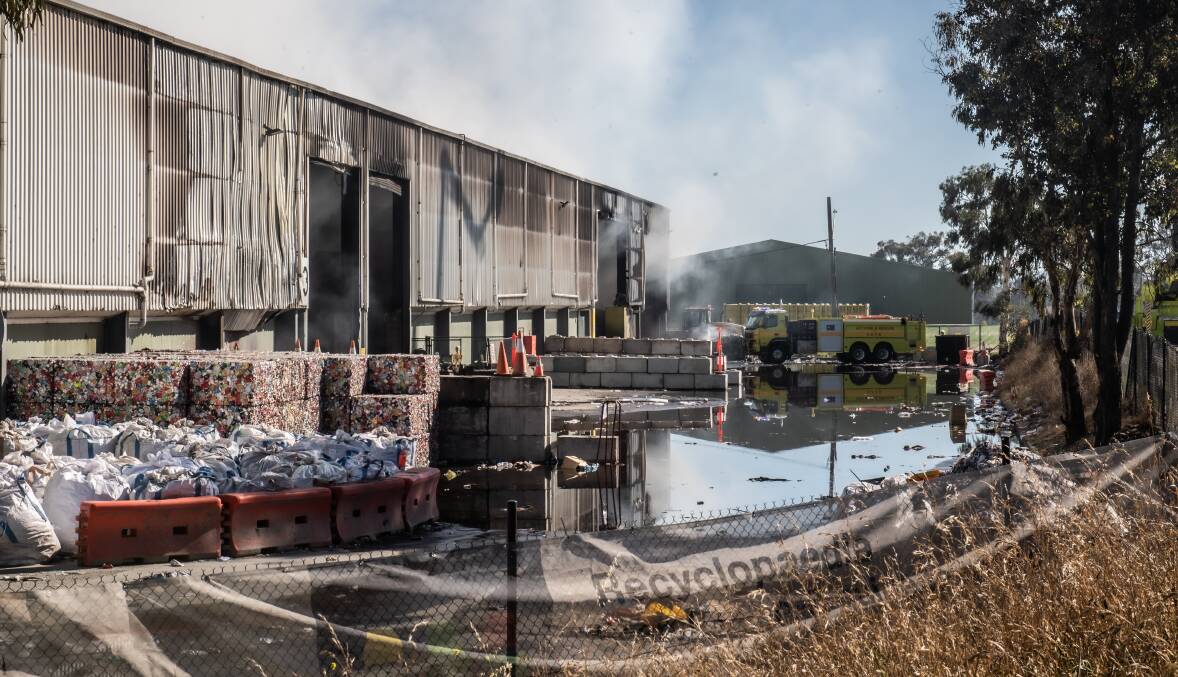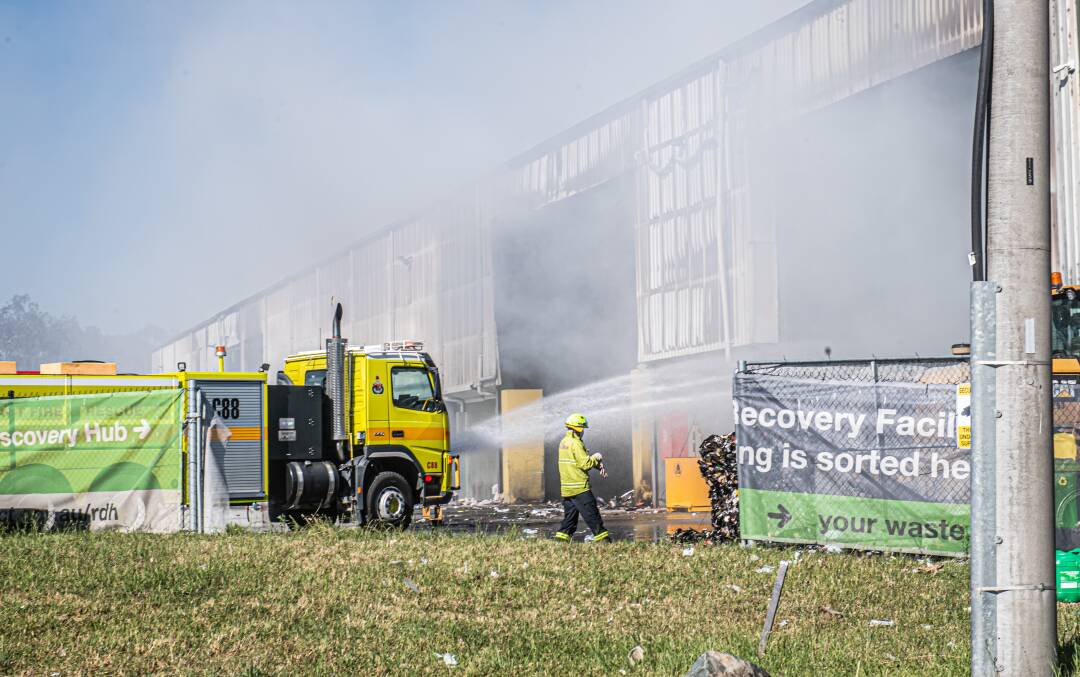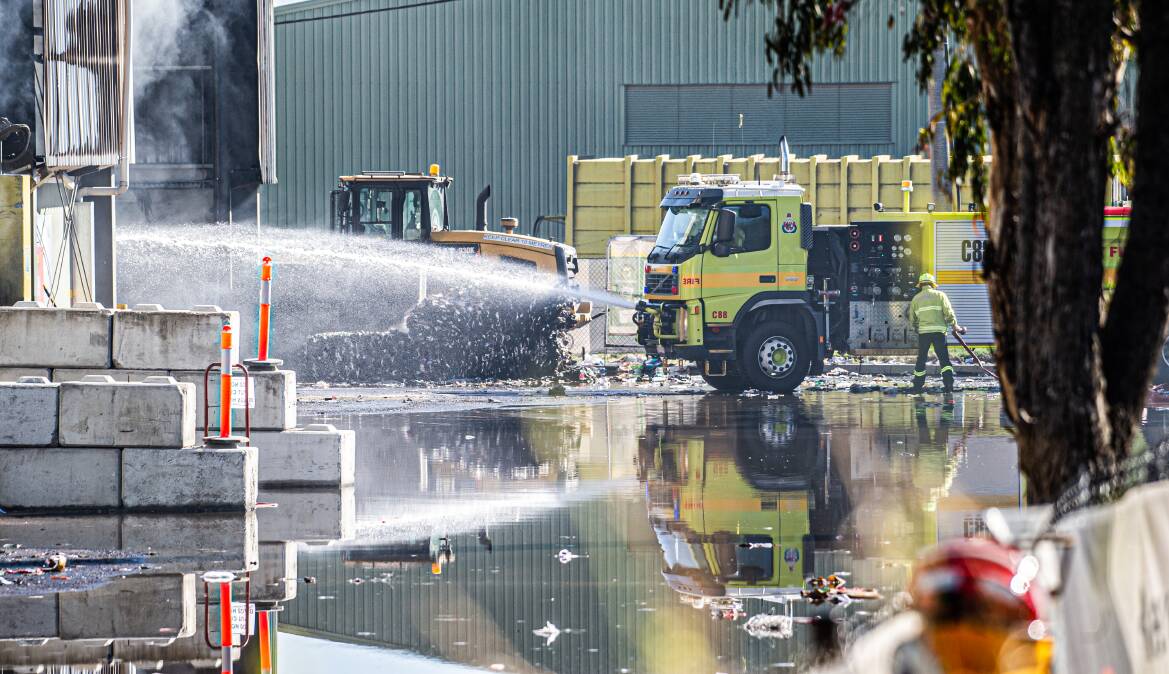
The ACT government is on the search for a consortium partner to co-finance and operate its new recycling plant at Hume, with $21 million already guaranteed toward its construction by the Commonwealth and the territory.
The new Materials Recovery Facility (MRF) would be required to have sufficient capacity to process 115,000 tonnes of mostly glass, cardboard, aluminium and plastics a year - more than double that of the previous facility which was destroyed in a massive blaze on Boxing Day last year, triggered by a thermal runaway from lithium-ion battery contamination.
An early tender notification has been issued by the ACT government seeking a "fit for purpose, modern" MRF.
The new facility must have "the capacity to sort, separate, and process materials for the Canberra region, creating higher quality resources with higher value uses including remanufacturing".
"The ACT government would like the MRF to carry out secondary processing of material, if, commercially viable at the scale and location proposed, such as plastic washing and glass crushing," the tender stated.
The new plant will be built on the same site as the existing one as well as an adjoining block on Recycling Road in the Hume Resource Recovery Estate.
However, the steel structure of the existing burnt-out plant - as well as much of the machinery within - was badly damaged by the blaze. How much can be salvaged and repurposed is unknown.

The ACT government wants the new MRF built "as a priority", and is expediting a single-stage procurement process.
The cost of building a new MRF at Hume is estimated at more than $50 million based on a similar such project in Victoria, where a Parliamentary Budget Office analysis four years ago indicated a build cost of $52 million.
The ACT government is described in the tender documents as "currently in the process of developing an Environmental Impact Statement (EIS) for the site to facilitate the obtaining of prompt planning approvals".
Any company which tenders for the project will be required to demonstrate a capability to "finance, design, build and operate (under a long-term contract) a fit-for-purpose modern MRF with the capacity to sort, separate, and process materials for the Canberra region, creating higher quality resources with higher value uses including remanufacturing".
"The ACT government would like the MRF to carry out secondary processing of material, if, commercially viable at the scale and location proposed, such as plastic washing and glass crushing".

The term of the contract between the government and the successful tenderer is expected to be 20 years.
"To reflect the expedited procurement and delivery timeframe, it is desirable that that the facility contract be entered into between the Territory and a single contractor of substance (not joint ventures or special purpose vehicle entities)," the document stated.
Secondary processes such as plastic washing and glass crushing are processes which yield financial returns, with crushed glass turned into sand for concrete and road base. Washed and sorted plastics are far easier to recycle and re-process than the raw, baled product.
The ACT government's expedience on rebuilding its MRF is aimed at cutting the high current cost of sorting and baling the raw products and trucking them out of the territory.
The federal government is also under pressure to step up its recycling efforts with Federal environment minister Tanya Plibersek stating last year that it was "keen to invest" given there was a national target of 70 per cent of plastic packaging being recycled or composted by 2025.
"The latest figures indicate that we're nowhere near that. Something like 16 per cent," she said.
The full ACT tender documents will be released in the third quarter of this year, with a 12-week window for companies to respond.
We've made it a whole lot easier for you to have your say. Our new comment platform requires only one log-in to access articles and to join the discussion on The Canberra Times website. Find out how to register so you can enjoy civil, friendly and engaging discussions. See our moderation policy here.







